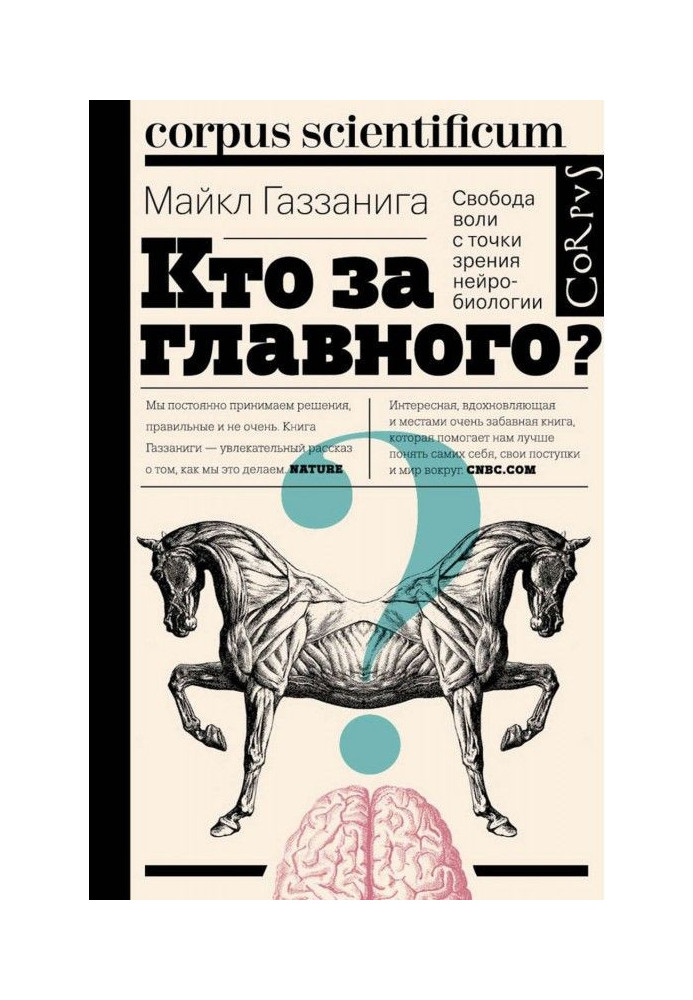Book Who for main? Free agency from the point of view of нейробиологии
The riddle of everyday life consists in that all of us, biological machines in the determined Universe, nevertheless we feel itself integral conscious subjects that operate in accordance with own aims and make decision freely. In a book "Who for main? Michael Газзанига explains whether everybody bears the personal responsibility for the acts. He tells how due to researches split brain the module of interpretation, compelling to count us, was open, as though we operate under own free will and accept important decisions. An author places all of it in a social context, and then drives us to the hall of court, showing, what relation нейробиология has to the idea of punishment and justice.
The book’s text has been translated from the original language using an artificial intelligence system. In most cases, the translation is accurate and clear, but occasionally there may be incorrect phrasing or individual words left untranslated.
- Name of the Author
- Газзанига Michael
- Language
- Ukrainian
- Series
- Corpus scientificum
- Release date
- 2011
Reviews
More books on this topic
Book Atlas of health of backbone and...
118 UAH
107 UAH
Book Astronomy on fingers. For...
137 UAH
124 UAH
Book Brain and soul. As nervous...
135 UAH
122 UAH
Book Scientific journalism as...
122 UAH
110 UAH
Book Strategy of indirect actions
131 UAH
118 UAH
Book How to read and understand...
220 UAH
198 UAH
Book Psychology for 5 minutes
108 UAH
98 UAH
Book Cheshire smile of cat Шредингера...
137 UAH
124 UAH
Book Viruses. Drivers of evolution....
220 UAH
198 UAH
Book Sapiens. Short history of humanity
118 UAH
107 UAH














08/16/2023
Вражаюча книга, що змушує замислитися про природу свідомості!
"Хто за головного? Свобода волі з точки зору нейробіології" - це неймовірно цікаве дослідження, яке відкриває нові горизонти в розумінні нашої свідомості та особистої відповідальності. Майкл Газзанига майстерно поєднує наукові факти з філософськими питаннями, що стосуються свободи волі, і вражає читача своїми висновками про те, як наш мозок формує наше сприйняття власних рішень. Книга не лише інформативна, але й надзвичайно захоплююча, адже автор вміло використовує приклади з реального життя, щоб проілюструвати свої ідеї. Особливо цікавою є частина, де він порушує питання про правосуддя і покарання, спонукаючи читача задуматися про етичні аспекти нашої поведінки. Єдине, що трохи відволікає, це якість перекладу, адже в деяких місцях зустрічаються некоректні фрази. Проте, це не зменшує цінності книги, і я б рекомендував її всім, хто цікавиться нейробіологією, філософією та психологією!